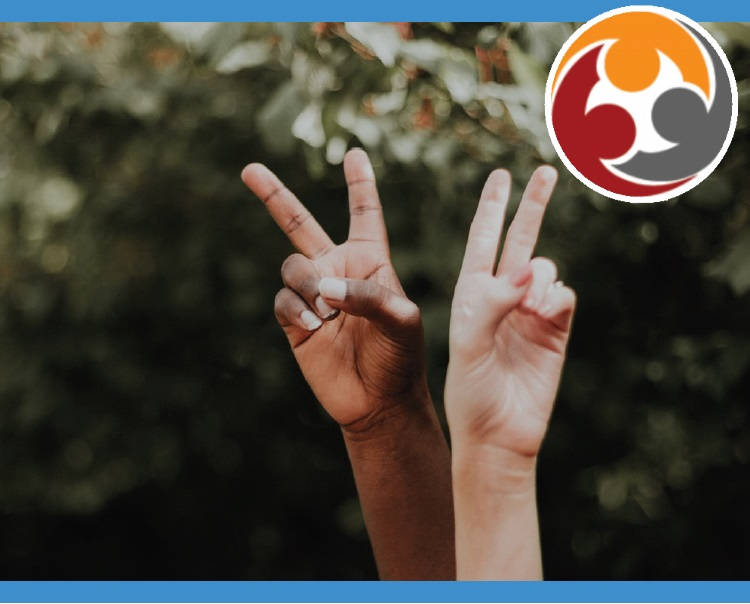
January, 2021
On November 15, 2020, approximately forty people participated in an on-line discussion entitled, “Do You Feel A Call to Take Action?” The conversation focused on the issue of racism in our country and was a continuation of the “Oneness of Humanity” series begun by Tysons Interfaith in August 2020. In previous sessions, leaders of various faith communities inspired us with their tradition’s fundamental rejection of racism in all its forms.
Here are some key points raised by participants in response to the three questions posed.
- What has been learned about racism in our country during the pandemic?
- For many, this time has been a real eye-opener to the extent of racism in our country.
- This includes the depth of systemic racism and the great disparities in health care, education, criminal justice, housing, employment, and income inequity by race.
- Racism has become more visible, to the point we can “feel it” as we watch the personal pain and suffering of others daily on broadcast and social media.
- Many have learned we can no longer simply watch; we feel called to get involved.
- If you are not part of the solution, you are part of the problem.
- Awareness of the extent and impact of racism has stirred action and protest by people across all cultures and age groups – not just by those who are victims of racism.
- We must be honest with ourselves in assessing of our own personal racism.
- Elections do not guarantee change; politicians cannot fix this alone. We all must take action.
- Different groups have been affected disproportionately by the pandemic.
- “Denial” is the heartbeat of racism (quoted from author Ibram Kendi).
- Many Americans seem entrenched in a lack of concern for others in their communities.
- How do we shift human consciousness to rectify policies that sustain racial inequity?
- People of faith can build relationships.
- There is a great divide; we can put our faith into action to bridge that divide.
- Shift thinking from “what’s in it for me” to “what’s in it for my community or for society at large.” Life is not “all about me.” We each are part of a larger community.
- Support political candidates who share our values on race and communicate with them regularly regarding our personal views on race issues.
- Increase awareness through self-education – books, articles, dialogue with others.
- Education, education, education.
- We must reach out to those people who remain oblivious to racism or are resistant to change.
- Cautions:
- Information overload can cause us to shut down.
- In general, we live and worship in segregated communities.
- We must own our history – but positively so: what have we learned and how do we correct inequities?
- Diverse cultures can agree; we must dialogue with neighbors, co-workers, etc.
- Understand who you are – and how you arrived where you are. Now is a great time for self-reflection.
- What is positive in the chaos we are experiencing that can enable us to build to a better future?
- Racism awareness has increased; many feel hopeful this will lead to positive change.
- We saw record voter turn-out in the recent election.
- People want to become involved.
- Being “locked in” we have had time to learn and to reflect on what a more equitable future might look like.
- We are encouraged by young people who have become actively involved.
- Being uncomfortable is good; discomfort moves us to action.
- People of faith can be people of reason in the debate and in actions going forward.
- Time is precious; don’t waste it.
- The importance of leading by example – and what happens when there is no leadership.
Open Discussion
- We must simultaneously serve immediate needs (e.g., hunger, housing) but also must change the long-term policies that create those immediate needs; not an either or choice.
- Hate covers fear; if you hate, you must fear something. What are you afraid of?
- School to prison pipeline. People do not understand how that works.
- Be a good listener; that’s how you can understand your own moral compass.
- People of privilege must realize their privilege, not apologize for it; then use that privilege to help those who are not so privileged; not sharing from a point of “superiority” but from simply a motivation of love; we honor all of humanity.
- Many decisions about and judgements of people – from birth to death – are made about them based on the color of their skin.
- Content of character – our own and others – is what’s most important.
- We must show love not only to those victimized by racism but also to those perpetuating racism.
- Love your neighbor as yourself.
- How we see color – and what we associate with that color – affects our immediate response.
- Easy availability of guns puts burden on police to assume everyone is armed to the teeth.
- Black kids are not perceived as kids – they are perceived as a threat.
- What gives us hope – the generation of kids growing up now. (Fairfax County is a very racially diverse area.)
Summary
If people of faith don’t take the lead, who will?
The breakout room reports and group discussion may be viewed at:
Copyright 2022 © TYSONS INTERFAITH. All rights reserved.
